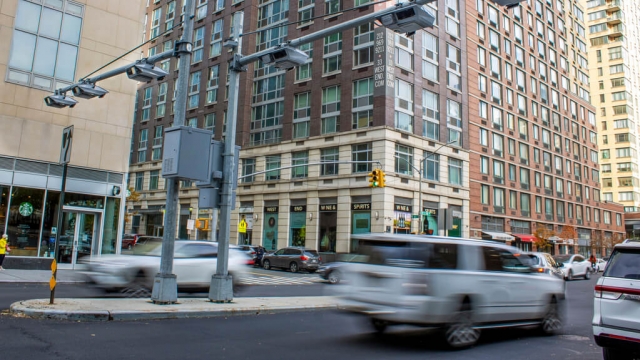Driving through Manhattan could soon become more expensive for drivers in New York City, as transportation authorities there have approved a congestion pricing plan.
Some critics have criticized the move because it does not exempt taxis and Ubers, passing the cost along to those who don't drive.
Under the plan, drivers could pay up to $15 to enter the central business district in Manhattan, but New York City officials say the plan will reduce congestion and pollution while generating funding for crucial capital projects like the extension of subway lines.
“I think it's like very over the top. I don't understand what it means. It just, it doesn't make sense,” said Micheal Tellez, a New York resident.
With a 9-to-1 vote, congestion pricing took a major turn in New York City as the Metropolitan Transportation Authority, or MTA, approved a congestion pricing plan.
While it would require most drivers to pay a $15 base fare for entering the central business district south of 60th Street in Manhattan, there will be discounts available for low-income drivers.
“I'm concerned, though, that that's going to cause public transit to become overcrowded with all the people who are currently driving, wanting to avoid paying such a big toll. $15 is a lot of money. So I'm not a big fan of it,” said New York City driver Andrew Brooks.
SEE MORE: Federal grants given to 17 states to help keep wildlife off roads
“I guess it will reduce, supposedly, cars, but I think people still need to drive, so I think it's just going to be more expensive for everybody,” said New York City driver Anton Domnsky.
Trucks and buses will be charged between $24 and $36, depending on their size. There will also be a $1.25 surcharge on taxis, a cost expected to be passed on to passengers.
Uber and Lyft riders could also be affected, as an additional $2.50 per trip charge will be applied to those apps.
“I think it's just another tax on people in the city. It's like, How much more can we withstand?" said Mimi, a New Yorker.
New York City officials say the so-called "congestion pricing" would reduce the number of vehicles entering Manhattan by 17% a day.
That would mean 150,000 fewer cabs, Ubers, and civilian vehicles would be operating within a large portion of Manhattan.
“I don't like it, only because, as a driver, it's nice to have the ability to go to downtown; sometimes I have meetings down there and not worry about paying a toll. I think with a toll, it would de-incentivize me from wanting to drive in,” said Brooks.
“I hope they use that money wisely to do something good for the city,” said Domnsky.
Officials say the plan will provide funds to make the subway system more accessible for the disabled by building more elevators.
This move will initiate a 60-day public commentary period before public hearings begin in February. The MTA will have to finalize a toll schedule with proposed rates.
Changes can still be made before congestion pricing goes into effect in the spring.
If transportation officials approve it early next year, the plan will be the first of its kind in the country.
Trending stories at Scrippsnews.com




